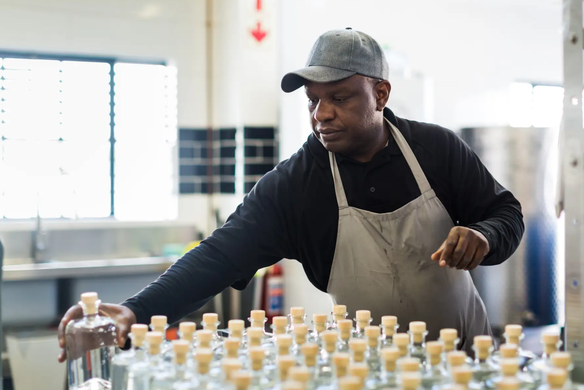This article was written by Evan Sully from Business Insider
There was a record increase in applications for new businesses in the US in the last year.
New applications for an employer ID in the US “reached 1.1 million through mid-September, a 12 percent increase over the same period last year and the most since 2007,” according to an analysis of US Census Bureau data by The Wall Street Journal. That number excludes gig workers, but including that specification of independent contractor boosts the number even higher, according to the report.
The Journal ties the spike in applications to a variety of contributing factors, including small businesses across the country being forced to close their doors, both in-person and virtually, as a result of the coronavirus pandemic.
Other factors cited include a boost in personal savings rates, evolving consumer behavior, and an uptick in spending across states as they’ve sought to ease restrictions after the federal tax-filing deadline was pushed back to July from its original date in April.
“This pandemic is actually inducing a surge in employer business startups that takes us back to the days before the decline in the Great Recession,” John Haltiwanger, an economist at the University of Maryland, told The Wall Street Journal.
The US economy added 1.37 million jobs in August, according to the Bureau of Labor Statistics, the fourth consecutive month of job growth. Additionally, the US unemployment rate in August fell to 8.4 percent.
This mark was down from 10.2 percent in July and better than April’s historically high 14.7 percent unemployment rate that happened to be the highest on record since the Great Depression. Still, the number of permanent job losses increased by 534,000 to 3.4 million, inspiring more Americans to pursue their own start-up ventures.
“These jobs numbers reflect a big win for American workers,” Robert Frick, corporate economist at Navy Federal Credit Union, said after employment numbers for August were released. “Unemployment breaking the 10 percent barrier so decisively is a big psychological lift as well.”
Looking ahead, US unemployment numbers for September will be released by the BLS on Friday. Markets Insider forecasts that the unemployment rate will decline to 8.2 percent.
Starting a business is inherently risky. Roughly half of startups survive long enough to hit the 5-year mark, according to the US Small Business Administration. Contributing factors for a company failing vary. Forbes reported that more than 7 out of 10 startups fail in the US as a result of premature scaling, and a majority of startup founders conclude that their intellectual property isn’t a competitive advantage like they thought it would be.
But for many people in the US, this is a time to get creative in an attempt to make ends meet. Congress hasn’t passed an economic relief bill to aid American workers since it passed the Coronavirus Aid, Relief, and Economic Security Act, or the CARES Act, in March. Most of the bill’s benefits expired this summer.
Stalled negotiations led House Democrats on Monday to unveil a $2.2 trillion stimulus plan that features a reinstatement of the Paycheck Protection Program to assist struggling small businesses nationwide.
However, data from the Small Business Administration showed that roughly $134 billion in PPP funds hadn’t been used even after Congress extended the deadline for the $670 million PPP fund for five weeks following its June expiration.
This article was written by Evan Sully from Business Insider and was legally licensed through the Industry Dive publisher network. Please direct all licensing questions to [email protected].
![]()











